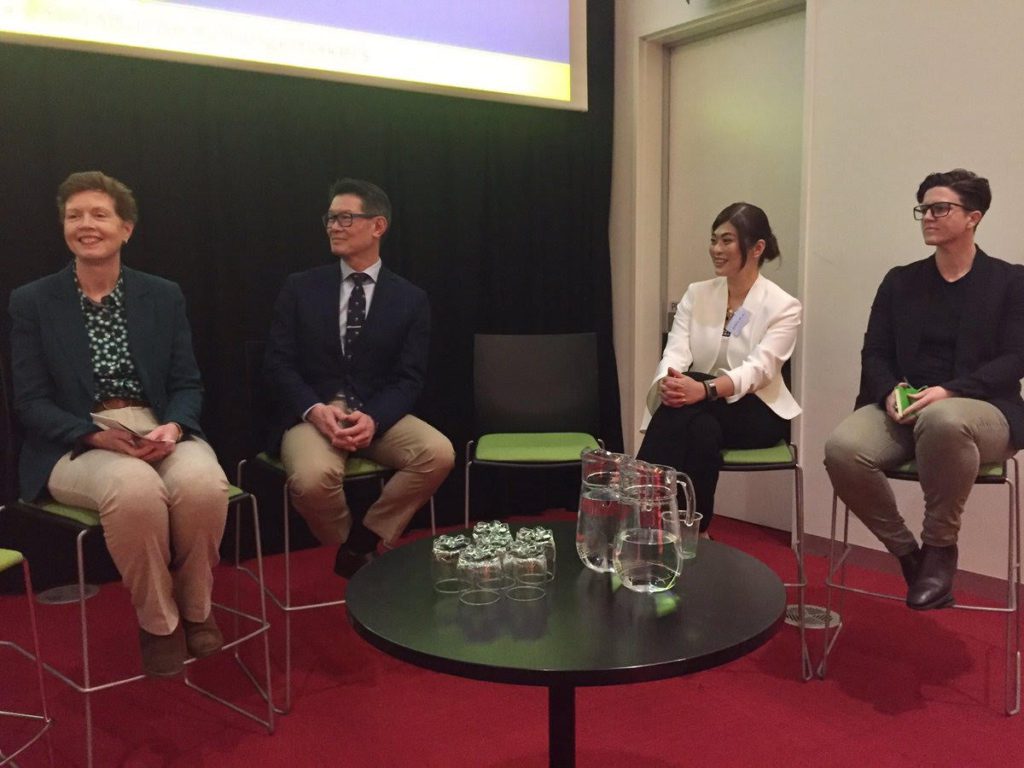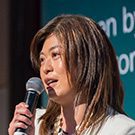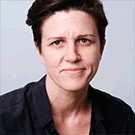Swinburne Research Changemakers Conference 23rd July 2019
9:30am- Professor Aleksandar Subic
How to approach research to bring the outside world in and transform the world through collaboration? Engagement with industry as vital to making impact. Evidence based rankings show Swinburne growing in research profile in the last few years. Early Career Researchers are a key aspect of Swinburne’s research impact aims.
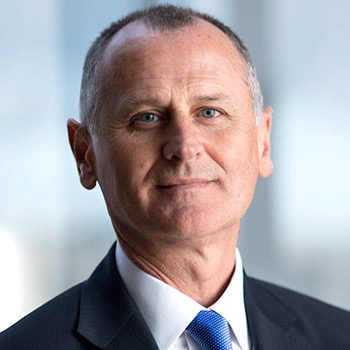
9:40am- Professor Ross Garnaut AC: Professorial Research Fellow in Economics, Uni Melb
Professor Garnaut had the good fortune of being surrounded in this early home institution by world leaders. He gave the four quarters of his professional and research life:
1st quarter summarised as understanding the forces of global development, incomes, capacity etc and how it was taking root in the Asia Pacific.
2nd quarter began with Bob Hawke asking Ross to be his economic advisor, engaging in economic reform and redesigning policy to integrate Australia into new opportunities.
3rd quarter took Garnaut back to ANU as ambassador to China, building a research and education base.
4th quarter began 2007 when asked to do a report on the things Australia would need to do to mitigate climate change.
Latest work has drawn on previous research throughout life, accumulating interests along the way.
Momentum on transition away from fossil fuels has momentum on its side.
Humans as making so much change in such a short space of time due to their capacity to imagine and to take their imaginings and draw them/demonstrate and draw maps of reality to guide movement and exploration.
Research is about changing those maps, recognising where the maps don’t fit the reality. Pure and applied research.
All research is a mixture of pure and applied, creating new maps and testing/filing them in.
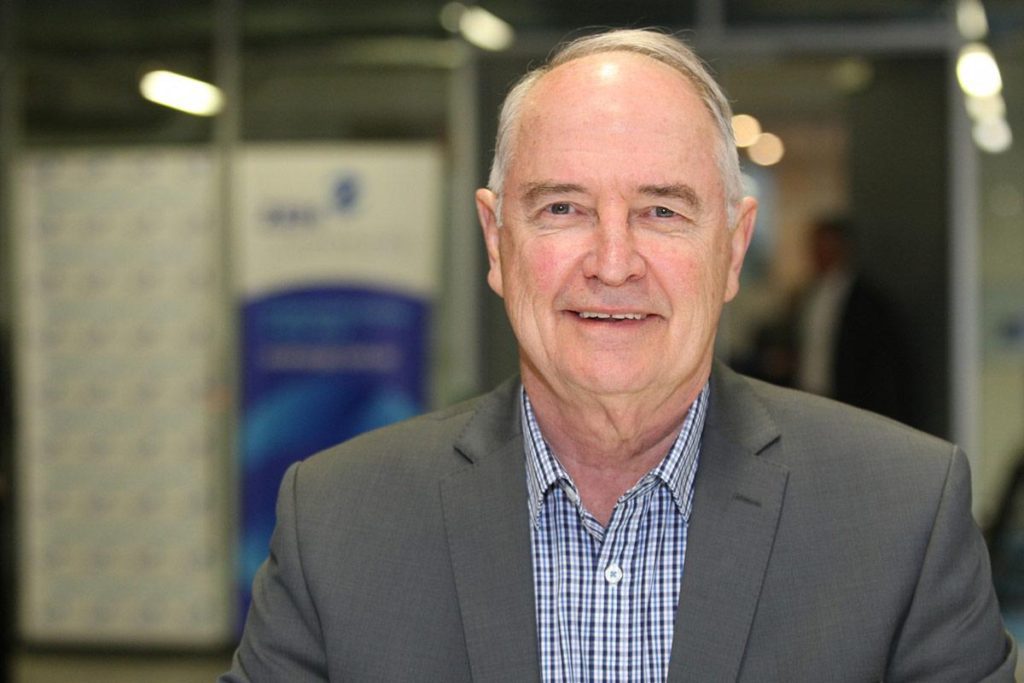
Drawing new maps by 2 methods- inductive reasoning (certainty, reasoning based on known reality) and deductive/mathematical reasoning
Inductive flaws- observations we draw upon are never of the whole universe and there is a need to adjust the maps as our attention is drawn to new aspects of reality.
Deductive flaws- while the logic may be perfect, the relevance of the conclusions is based on the relevance of the premise.
Last quarter of career on climate change and energy and Garnaut’s report from 2007 to 2008 took the most energy and work since his PhD thesis. This was an elaborate analysis of issues with the conclusion that it would be costly to move to a renewable energy based economy and energy production, but it would be more costly eventually to deal with climate change. The views from this were that the cost of doing nothing was cheaper than doing something – “which was silly”. Reaction against this saw the carbon price removed, although there are some important institutions still remaining as a result. Most importantly the new energy systems are turning out less costly than the old ones which creates a special advantage for Australia. We are blessed with renewable energy sources and so if we don’t mess it up we will become a world leader in renewables plus also minerals (iron oxide for instance) in a zero emissions world that will become converted to metal via hydrogen processes. Advanced manufacturing will be driven by:
The cost of renewable energy (need to replace carbon based with renewable based)
Capacity for carbon capture and storage
The “Black Swan” event in Australia will be the unforeseen change in costs of renewables and the ability of Australia to take advantage of them.
10:10am- Dr Cathy Foley: Chief Scientist for the CSIRO
The choices we take and the opportunities that are presented as a result allow us to help create the world we desire. Swinburne in a special place as a relatively new and agile institution. Change of technology and the world happens fast. Looking at the introduction of cars; within a decade they completely replaced horse and cart. The ubiquity of smart mobile phones within a decade of their introduction. Driverless cars require government involvement to change laws in line with technology. Dr Foley showed Bucky’s Knowledge doubling curve, seen in research spending going up, publications going up, patents going up. There is incomprehensible amounts of information being produced all the time.
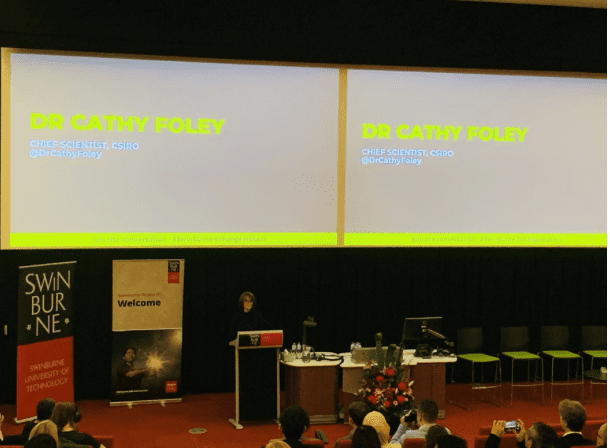
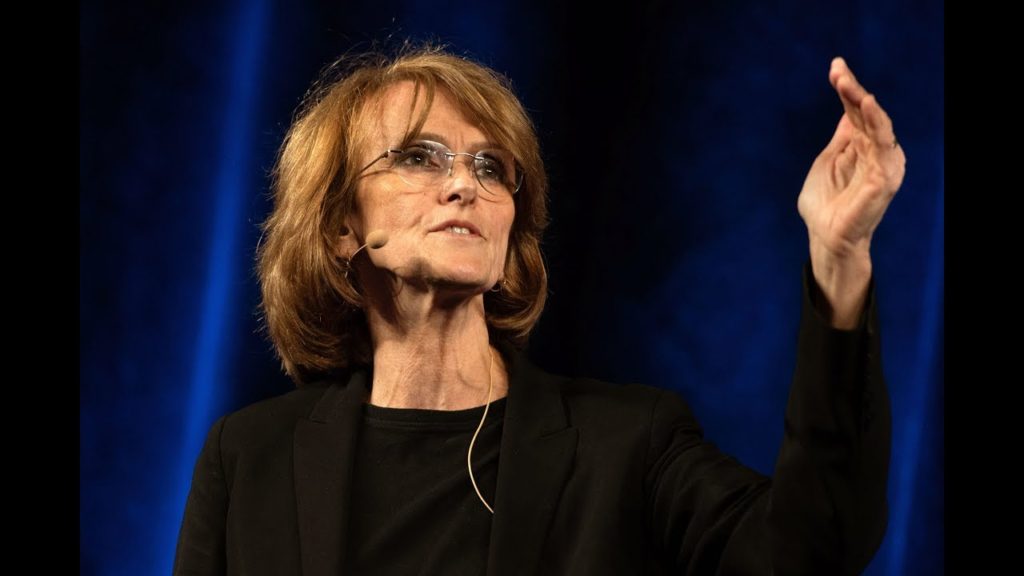
We face many challenges to energy, environment, food security, health, and all these require future industries. There are opportunities with data; “the new oil” and big data, with accompanying risk related to concentration of this data in private monopolies. Artificial Intelligence and Machine Learning is the number one priority as that will be crucial in taking the data and analysing it, doing something useful with it. In the future it’s possible there will be no more need to experiment on animals, no need to gather more data in the field; the computer power required to do this will be available and ready to be accessed by all.
There is a Quantum revolution, with more circuits being fabricated every year than the number of ants on the earth! Quantum computing, algorithms, ‘digital twins’ for humans, the environment etc where we can experiment in real time. Australia is bottom of OECD in communication and translation. Disruption comes from small teams, impact comes from bigger teams. Academic and industry institutions joining allows projects to scale up, start up businesses.
11:10am- Addressing the Changemakers – Panel Discussion:
Swinburne Astronomy Productions: Graduate Animation team of Russell Scott and Sam Moorfield in association with Astrophysics department- teaming up with December Media to create IMAX films and producing films on a worldwide scale.
Poverty as the default- Angus Madison conducted research showing that up till relatively recently the life expectancy was 30 years old, changes in wealth has been the last 150 years, technology change and innovation as the way we have instituted great change in our world. Centre for Transformative Industries as an interdisciplinary institution that analyses bug data, fostering relationships with key government areas, generated 7 ARC Projects since inception.
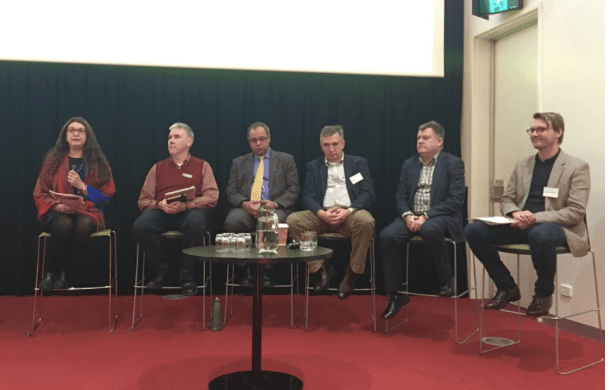
Big projects as evolving organically and not usually part of some big plan, mostly small projects originally, so start with a small pilot to show and demonstrate to industry partners. Perseverance is important, building a research team that can continue after the initial project is finished to continue working in that area.
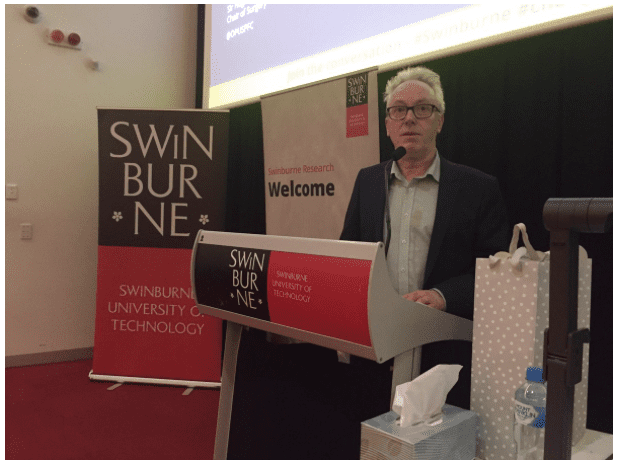
How to start- finding the right team. Recognise your own abilities and limitations. Quantifying impact is very difficult to do from area to area and project to project. How does a change of policy lead on to improvements that are quantifiable (in dollar terms for example). Partnerships are important- working with people who can affect policy- industry ned users, government, teachers etc- who are the people who will be using the thing you are creating and doing key research and already be in touch. Knowing what you’re good at and know who might be interested in that and get out from behind your desk, being selective about the projects you’re involved in, chatting on the phone to discuss ideas, making sure people know you’re available and are happy to contact you.
What is the question, what is the value I’m adding in my research? Who are you selling it to, what can you ask for it?
12:25- Research Career Planning for Impact
General discussion
Fellowships for international experiences, objectives to learn overseas culture, what’s happening in os research, collaborations etc.
Quality is the most important thing! Keep learning new things throughout the career. Contributing to the big picture by identifying and solving problems.
Research impact- what is the consequence to change policy, to create benefit (user benefit, research benefit)? Impact must be clear whether citations funding or other.
There’s academic research, industry research, where are you positioning yourself to make the greatest contribution? Getting external support funding and assistance, looking for the right opportunities, getting support from mentors, looking for the right strategy to build your career and find the right work-life balance.
Being a parent is an issue particularly for women, and the more successful people are those without children. If asked to take place in media engagements, make sure its in your area of expertise, and it’s useful as these are time consuming.
It is your responsibility to look after your own outputs (books chapters, journals, whatever) therefore they must be of high quality because they are tied to your name. You are benchmarked across the faculty, institution.
You must make something happen; you are responsible for the whole university.
Time is limited. Weekends and holidays become consumed with personal research outside of work time which is consumed by university work. Set your ambitious targets.
Enjoy it and focus on your own interests. Identify what you are good at and aim to be the best at it.
Is social media impact?
Twitter can be useful for sharing information, relevant stories, building relationships, communication with possible collaborators.
Be professional, be authentic. However research impact comes down to citations, peers talking about your work.
Social media is good for disseminating their research but not as a measure of quality.
Think about university reputation, approach posting with a positive attitude, this can damage the university and your research.
What is the most effective method of change re policy, research?
Key is to be good at your fundamentals so you can translate that knowledge to the outside world. Similar to how you start small, and grow bigger. Seed grants allow for this to have you working with industry, come up with an outcome, the industry partner can benefit, connect with other partners, and you can then submit larger proposals based on the success of that smaller project.
Being authentic in the things you’re good at and allow that to grow organically.
Being linked to networks where you can respond to contemporary events and requirements in a nimble fashion.
Is your research useful or not? Is there any real benefit? Across the whole sector there is not a great real-world impact. It is important to translate your research to industry and the world.

14:00 – Industry Panel
What are the jobs of the future?
Dr Caples- There will be an increase in need for jobs that require humanistic skills. Many blue Collar jobs will cease to be, others will grow. Ms Gaylor- Climate is a pressing factor that is influencing economy into the future. Skills that are necessary looking at automation are integration. What does the future of healthy connection look like. Professor Choong- As a doctor we treat many and save few. Living in such an over regulated society sometimes its easy to stay quiet. But you have to speak up and be counted. Australia’s debt is something like 20-30% of GDP which gives room to grow and innovate. Dr Wong- 3 spheres- regulatory, business, innovation. Here we can improve on the innovation environment involving creation and knowledge diffusion. Encouraging entrepreneurial mindsets in school and early on. Giving access to markets and access to finance. US have a long history of encouraging startups so the administrative burden is straightforward.
What should we be doing and how should we be interacting with these industrial partners?
Dr Caples- Climate change is one of our greatest challenges. Zero percent emissions by 2050. Currently identifying interim targets. Recent panel put forward a range at five year intervals. There is a public facing process for advice on these targets. Public transport is a challenge. Every project above 50 million dollars has a 50% local content requirement (gravel steel etc) this also will account for innovation and advanced materials input. Ms Gaylor- Red Cross’ greatest challenge is assuming they have the power to solve this issues. What are the functions of a service like red cross? As a logistics provider for humanity- connecting strategic partners. Talking ‘human’ and ‘research’ and understanding how to merge the two languages. Change happens on different levels at different paces. Prof Choong- 10-15% of health budget is wasted on unnecessary complications. Looking at resource management, people management- allowing innovation to take the place of tradition. How do we do it better? Old saying that the patient should be the centre of the doctor’s universe. You want interventions to be the most successful. Dr Wong- How do you turn innovations and research into real-world outputs? How do we communicate inventions in a way that organisations can utilise it and turn it into an innovation? 1- Urgency in improving existing products or services 2- Industry awareness of a revolutionary product or service created within an academic setting
What one change would provide the most impact?
Ms Gaylor- Disruption. In order to see significant progress in big issues we need to change the way things are done. Academics need to find what’s wrong- look at the network effects Prof Choong- Leadership. There is a poverty of leadership when it matters so much. We are currently surrounded by disappointing leaders across moral, ethical issues. Not signing up to nuclear disarmament for example. Political apathy and lack of direction as a major modern problem. University needs to promote solid thinkers and leadership. (How can I integrate that into my teaching- focus on class led activities and knowledge dispersal) Dr Caples- Leadership is about creating a vision and installing the processes and sustainability to reach critical mass of change. Removing barriers between business, government and universities. Systematising relationships that are currently ad hoc and personal to the point where there is formalised connection of all 3 spheres.
Is there a place for philosophy in science and research?
Ms Gaylor- Yes. Looking at the intersections of science and humanitarian issues we often get caught up on ethics. New push to Humanitech- Blockchain derived method for ensuring personal data remains your property.
What advice for people going from researcher to entrepreneur?
Prof Choong- Everyone has at least one invention in them. But know when to snip- researchers need to know at what point to cease research and to publish/devise something to take advantage of the research. Dr Caples- Less than 10% have the entrepreneurial spirit to get things done- don’t get in the way of something going to market if you’re not the person for that task. Storytelling and the need for communication- how do people talk to each other about data, complex ideas? Has anyone injected storytelling into this process?
Dr Caples- The way to engage with your audience is to tell them a story
Ms Gaylor- Storytelling gets lost in translation. We need to think of storytelling as much as about storylistening. What are the communities that we can go to and listen to, understand the themes that emerge.
Prof Choong- Keep it simple. If a child doesn’t understand it, it won’t work. What’s best for the community is the best for all- keep the message clear. Wrap-up
Maintain the robustness of your research. Communicate and collaborate. Quality and integrity.
